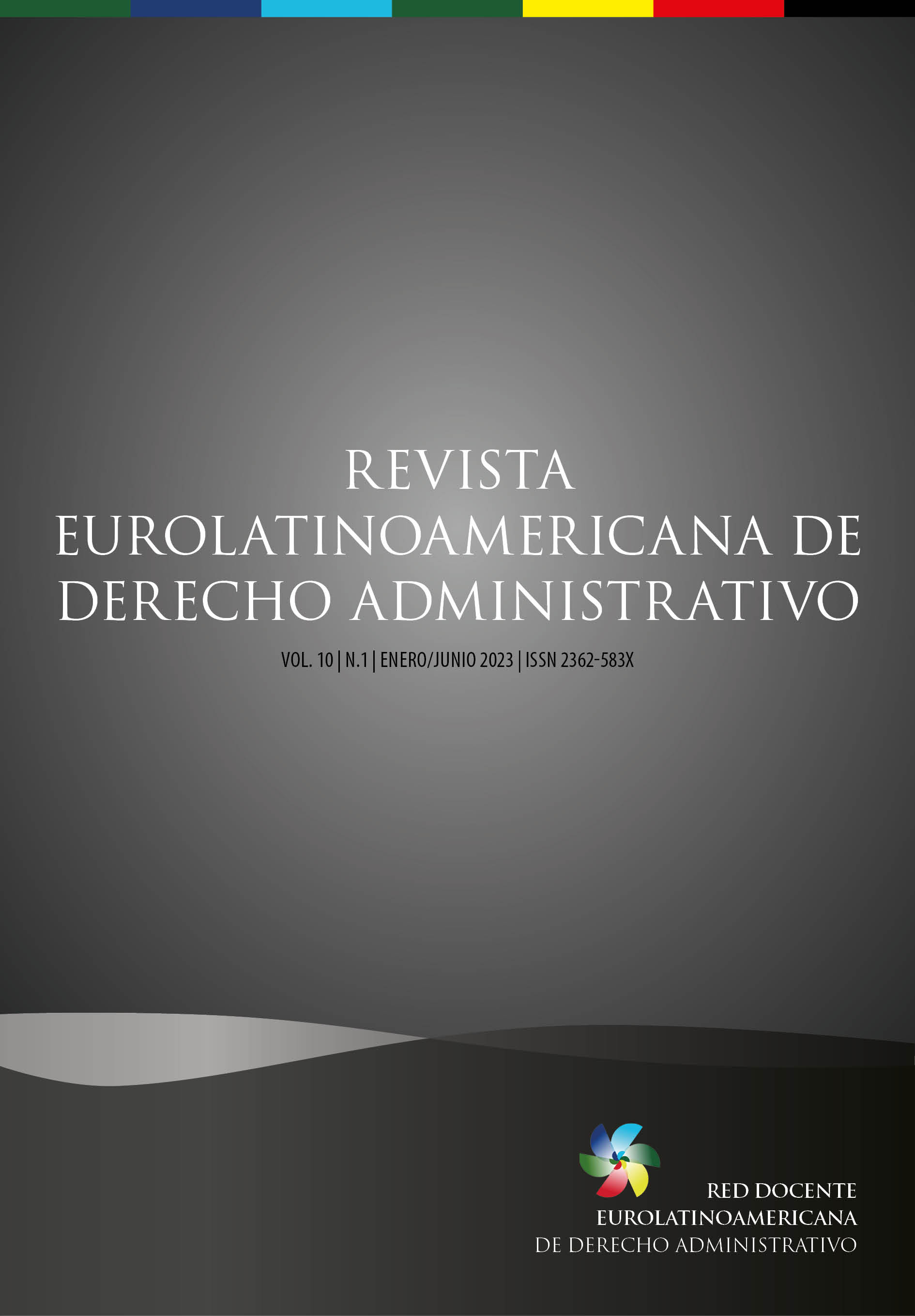Escapando del "Estado Regulatorio": el caso de la regulación de la educación superior en Perú
DOI:
https://doi.org/10.14409/redoeda.v10i1.12759Resumen
Este artículo trata sobre la regulación de la educación terciaria en Perú en el contexto de la omnipresencia del “estado regulador” dentro de las democracias liberales. La regulación de la educación terciaria peruana es un gran ejemplo de los peligros del “estado regulador”. Después de una década de “reforma”, ahora los peruanos tienen menos competencia, precios más altos y menos acceso a la educación, sin una visión objetiva de mejora de la calidad. En primer lugar, se presenta el “estado regulatorio”. ¿Cómo ha nacido y por qué está en constante crecimiento? Sostiene que es producto de procesos muy diferentes: una economía que se aleja del libre mercado o la planificación económica y las políticas de bienestar. En segundo lugar, se presentan alternativas para reducir el número de regulaciones, desde las más obvias hasta algunas que cambian el paradigma. Ninguna de estas alternativas es suficiente. En una tercera parte -conceptual-, el autor presenta el caso de la regulación peruana de la educación terciaria -en la que el estado controla la mitad de la oferta-, el autor concluye que efectivamente fortaleciendo el rol del estado se reducirá la presión para regular. En este sentido, un modelo más cercano al modelo nórdico -en el que los componentes de una economía mixta de tipo mixto son más distintos en el sentido de que intervienen fuertemente cuando deciden intervenir pero mantienen una economía de libre mercado como trasfondo general- es una mejor manera de escapar de la cualidad de ubicuidad del estado regulador.
Citas
CALABRESI, Guido. A Common Law for the Age of Statutes. Cambridge: Harvard University, 1982. Available at: https://doi.org/10.2307/j.ctvjnrv5p
CALABRESI, Guido. The Cost of Accidents: A Legal and Economic Analysis. Connecticut: Yale University Press. 1970. Available at: http://www.jstor.org/stable/j.ctt1cc2mmw
COFFEY, B; McLaughlin, P; Peretto, P. The Cumulative Cost of Regulations. Virginia: Mercatus, 2016. Available at: https://www.mercatus.org/research/working-papers/cumulative-cost-regulations
DUDLEY, Susan. Milestones in the evolution of the administrative state. Daedalus, v.150, p. 33-48, jul. 2021. Available at: https://doi.org/10.1162/daed_a_01858
ENGELSTAD, Fredik; LARSEN, Håkon; Rogstad, Jon. The Public Sphere in the Nordic. 1st ed., 46-70. Norway: De Gruyter, 2017. Available at: https://www.jstor.org/stable/j.ctvbkk05k.6
HALLONSTEN, Olof. Where did all the money go? Funding, personnel and expenditure in Swedish universities and colleges 2001-21. Swedish: Quality in Higher Education, 2022. Available at: https://doi.org/10.1080/13538322.2022.2121469
HILSON, Mary. The Nordic Welfare Model. In: LINDSKOG, Annika; STOUGAARD, Jacob. Introduction to Nordic Cultures. London: UCL Press, 2020. Available at: https://doi.org/10.14324/111.9781787353992
KING, Roger. Governance and accountability in the Higher Education Regulatory State. Switzerland: Springer, 2007. Available at: https://doi.org/10.1007/s10734-005-3128-2
LAWSON, Gary. The rise and rise of the administrative state. Harvard Law Review, v.107, p. 1231-1254, apr. 1994. Available at: https://scholarship.law.bu.edu/faculty_scholarship/2627
MORAN, Michael. Understand the regulatory state. British Journal of Political Science, v.32, p.391-413, mar. 2002. Available at: https://doi.org/10.1017/S0007123402000169
NIELSON, Aaron. Deconstruction (not destruction). Daedalus, v. 150, p. 143-154, jul. 2021. Available at: https://doi.org/10.1162/daed_a_01864
PERÚ. Tribunal Constitucional. Case number: 0008-2022-PI/TC. Congresistas vs. Congreso and Poder Ejecutivo. 20 de diciembre de 2022.
ROSENBERG, David; WOOTTON, James. The Regulatory Advantage of Class Action. Regulation Through Litigation, p. 244-309, 2002. Available at: https://www.jstor.org/stable/10.7864/j.ctv86dhwh.11
SCOTT, Colin. The Regulatory Theory: Foundations and Applications. Canberra: ANU PRESS, 2017. Available at: http://www.jstor.org/stable/j.ctt1q1crtm.25
SUMAR, Oscar; MÉNDEZ, Rubén. Is the Peruvian constitution neoliberal? The influence of the Washington Consensus. International Journal of Public Law and Policy, v. 7, p. 14-28, may, 2021. Available at: https://dx.doi.org/10.1504/IJPLAP.2021.10035863
VISCURI, W. Kip. Overview. Regulation Through Litigation, p. 1-21, 2002. Available at: https://www.jstor.org/stable/10.7864/j.ctv86dhwh.4
WHITMAN, James. Consumerism Versus Producerism: A study in comparative law. The Yale Law Journal, v. 117, p. 340-406, dec, 2007. Available at: https://doi.org/10.2307/20455797
YAMADA, Gustavo; CASTRO, Juan. Calidad y acreditación de la educación superior: retos urgentes para el Perú. Lima: Repositorio de la Universidad del Pacífico, 2013. Available at: http://hdl.handle.net/11354/1916
Descargas
Publicado
Cómo citar
Número
Sección
Licencia
Derechos de autor 2023 Oscar Sumar, Rodrigo Hawkins

Esta obra está bajo una licencia internacional Creative Commons Atribución 4.0.
Autores que publican en esta revista están de acuerdo con los siguientes términos:
- Autores mantienen los derechos autorales y conceden a la revista el derecho de primera publicación, con el trabajo simultáneamente licenciado bajo la Creative Commons - Atribución 4.0 Internacional que permite compartir el trabajo con reconocimiento de la autoría y publicación inicial en esta revista.
- Autores tienen autorización para asumir contratos adicionales separadamente, para la distribución no exclusiva de la versión del trabajo publicada en esta revista (ej.: publicar en repositorio institucional o como capítulo de libro), con reconocimiento de autoría y publicación inicial en esta revista.
- Autores tienen permiso y son estimulados a publicar y difundir su trabajo online (ej.: en repositorios institucionales o en su página personal) a cualquier punto antes o durante el proceso editorial, ya que esto puede generar alteraciones productivas, así como aumentar el impacto y la citación del trabajo publicado (Véase El Efecto del Acceso Libre).



























.png)





